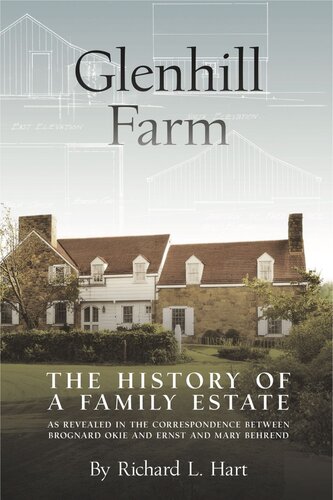

Most ebook files are in PDF format, so you can easily read them using various software such as Foxit Reader or directly on the Google Chrome browser.
Some ebook files are released by publishers in other formats such as .awz, .mobi, .epub, .fb2, etc. You may need to install specific software to read these formats on mobile/PC, such as Calibre.
Please read the tutorial at this link: https://ebookbell.com/faq
We offer FREE conversion to the popular formats you request; however, this may take some time. Therefore, right after payment, please email us, and we will try to provide the service as quickly as possible.
For some exceptional file formats or broken links (if any), please refrain from opening any disputes. Instead, email us first, and we will try to assist within a maximum of 6 hours.
EbookBell Team

4.1
50 reviewsBy 1930, having developed a highly successful business, the innovative paper manufacturer Ernst Behrend and his wife Mary purchased a number of existing houses and farms to give them sufficient acreage to create a large estate. In 1948 this property became a campus of Penn State University. Known as Penn State Behrend, to this day it retains the original buildings at the historic center of the campus.
Based on archival materials, including copious letters between the Behrends and their Philadelphia architect, R. Brognard Okie, this book recounts the planning and development of a unique residence as the country headed into the Great Depression. Letters between the key figures give the reader a glimpse into their thoughts and concerns, including the selection of an architect, the choice of an architectural style, issues involved in planning the estate, and the features and design of the buildings that were constructed or modified. Vintage and modern photographs help convey the nature of the buildings that Okie designed as well as a sense of the Behrends’ lifestyle in the 1930s.
An absorbing microhistory of what is now Behrend College, Glenhill Farm provides a window onto a period when new money from industry supported lavish lifestyles, and it reveals how this particular project, conceived and constructed during the Great Depression, was affected by its extraordinary economic circumstances.